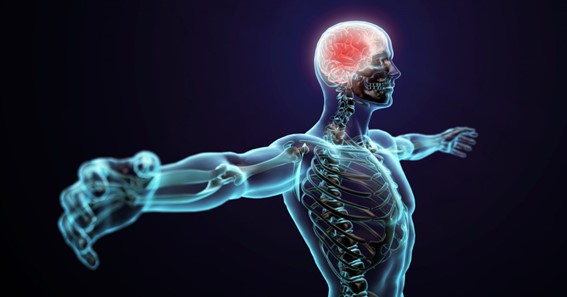Key Takeaways –
- The ECS plays a fundamental role in maintaining bodily homeostasis, influencing mood, appetite, pain, and immune functions.
- Cannabis interacts with the ECS through cannabinoids like THC and CBD, which can modulate various physiological processes and offer potential therapeutic benefits.
- Ongoing research into the ECS and cannabis holds promise for new treatments for a range of conditions, highlighting the importance of understanding this complex system.
- While cannabis has potential health benefits, responsible use and awareness of possible risks are crucial for maximizing its positive effects on the ECS.
Are you curious about how cannabis interacts with your body? The Endocannabinoid System is a key player in this relationship. It’s a complex system within the body that helps keep various functions in balance, such as mood, appetite, pain, and immune responses.
This article will provide a detailed look into the Endocannabinoid System, including its parts, how it works, and how cannabis affects it. Whether you’re interested in the health benefits of cannabis or just want to learn more about its effects on the body, this guide covers it all.
The Endocannabinoid System (ECS) is an essential component of our physiology, playing a pivotal role in maintaining bodily homeostasis by regulating mood, appetite, pain, and immune functions. Cannabis interacts with the ECS through cannabinoids like THC and CBD, modulating various physiological processes and offering potential therapeutic benefits. Ongoing research into the ECS and cannabis holds promise for new treatments for various conditions, highlighting the importance of understanding this complex system. For more information on how cannabis interacts with the ECS and to explore potential health benefits, visit dispensary website.
Learn about the ECS and the role it plays in the connection between cannabis and our bodies, offering insights into new ways to approach health and wellness.
What is the Endocannabinoid System?
Fundamental Components and Their Functions
Discovered in the early 1990s, the Endocannabinoid System (ECS) is a sophisticated cell-signaling system with three main components that work together to regulate various bodily functions:
- Endocannabinoids: Molecules your body produces that are similar to those found in cannabis.
- Receptors (CB1 and CB2): Found throughout your body, these receptors interact with both endocannabinoids and cannabinoids.
- Enzymes: Responsible for breaking down endocannabinoids and cannabinoids after they’ve fulfilled their roles.
This system is crucial in managing aspects such as mood, memory, appetite, pain, and the immune response.
The ECS’s Pivotal Role in Human Physiology
The ECS helps maintain BODY HOMEOSTASIS, or stability, by monitoring and adjusting to changes in the environment. It’s involved in regulating various physiological and cognitive processes, thereby playing a critical role in ensuring the body operates optimally.
Through its network of receptors, the ECS influences functions such as sleep, mood, appetite, pain, and immune response, illustrating its importance in the overall health and well-being of individuals.
Cannabis’s Interaction with the Endocannabinoid System
The Impact of Phytochemicals in Cannabis on the ECS
Cannabis is rich in phytochemicals such as THC and CBD, each interacting with the ECS in unique ways.
THC latches onto ECS receptors effortlessly, modulating feelings, altering pain perception, and stimulating appetite. However, it’s not all positive, as it can bring about anxiety or paranoia for some users.
Conversely, CBD plays a more subtle role. It doesn’t bind directly to receptors but boosts the body’s own endocannabinoid efficiency, offering relief from various symptoms without the intoxicating effects (making it a fascinating component for researchers and users alike).
Exploring the Medical Benefits of Cannabis through the ECS Lens
Cannabis, through its intricate dance with the ECS, holds the potential for significant health benefits. It has garnered attention for its ability to alleviate chronic pain, reduce anxiety levels, aid in sleep, and even offer neuroprotective properties.
The ECS acts as the body’s intrinsic balance system, and cannabis assists by amplifying or moderating its signals, striving to restore equilibrium and improve well-being. This symbiotic relationship highlights the therapeutic potential of cannabis in managing and treating a wide array of conditions.
Risks and Responsible Use
Despite the promising benefits of cannabis, there are cautionary tales to heed. EXCESSIVE CONSUMPTION of THC can lead to undesirable short-term effects such as heightened anxiety or paranoia.
Moreover, long-term implications warrant careful consideration, including potential impacts on memory, cognition, and mood stability. CBD, while generally regarded as safer and less disruptive, still poses risks, particularly in interactions with other medications.
Thus, leveraging cannabis for its benefits requires a balanced approach and a well-informed understanding of its advantages and potential drawbacks. The ultimate goal is to navigate its use responsibly, optimizing the benefits while minimizing risks.
Advancements and Future Prospects in ECS Research
Cutting-edge Research on the ECS and Cannabis
The science world is buzzing with excitement over ECS research. Scientists are diving deep, discovering how ECS and cannabis can play a role in everything (from easing chronic pain to potentially slowing down some diseases).
With every study, we’re uncovering more about how this system works and how cannabinoids like THC and CBD can be harnessed for their therapeutic effects. It’s like we’ve found a hidden path in the vast forest of human health, and we’re only just beginning to explore it.
The Horizon of ECS Research
Looking ahead, the future of ECS research shines bright with promise. Imagine new treatments for conditions we’ve struggled with for years, all thanks to a better understanding of the ECS.
Researchers are on the cusp of developing SYNTHETIC CANNABINOIDS that could offer the benefits of cannabis without the side effects. Plus, as we learn more, we’re finding new ways to tweak the ECS for better health outcomes.
The potential is enormous, opening doors to revolutionary ways to heal and maintain wellness. The journey into ECS research is an adventure, and we’re just gearing up for the ride.
Frequently Asked Questions
Are There Other Plants Besides Cannabis That Affect the ECS?
Yes, there are other plants besides cannabis that can influence the ECS. These plants contain compounds that may not directly bind to cannabinoid receptors like THC or CBD but can affect the system indirectly.
For example, echinacea contains compounds that can influence the ECS, and certain flavonoids found in dark chocolate have been shown to enhance endocannabinoid levels. These plants and compounds offer alternative ways to engage with and support the ECS.
How Frequent Should I Use Cannabis to Experience Its Benefits on the ECS?
The frequency of cannabis use to experience its benefits on the ECS varies depending on individual factors such as tolerance, the condition being addressed, and the specific effects desired. It’s important to start with low doses and gradually increase as needed, paying attention to your body’s responses.
Consulting with a healthcare provider knowledgeable in cannabis use is advisable to determine a regimen that works best for you. Moderation and mindful use are key to maximizing benefits while minimizing potential risks.
Does Cannabis Have a Direct Impact on Mental Health Through the Endocannabinoid System?
Cannabis can have a direct impact on mental health by interacting with the ECS, which plays a key role in regulating mood and emotional responses. Compounds in cannabis, like THC and CBD, bind to receptors in the ECS, potentially affecting mental health positively or negatively.
While THC can cause temporary feelings of euphoria, it may also lead to anxiety or paranoia in some individuals. Conversely, CBD is thought to have anxiolytic and antidepressant effects, suggesting its potential for managing certain mental health conditions.
Conclusion
In conclusion, the Endocannabinoid System (ECS) is a fundamental aspect of human physiology, intricately involved in maintaining balance across various bodily functions.
Through the interaction with cannabinoids found in cannabis, such as THC and CBD, the ECS can influence mood, pain, appetite, and immune response, offering potential therapeutic benefits.
However, navigating the use of cannabis for its medical advantages requires a careful understanding of its effects on the ECS, along with consideration of the risks and responsible use. As research continues to advance, our knowledge of the ECS and its relationship with cannabis will expand, potentially unlocking new avenues for health and wellness.






